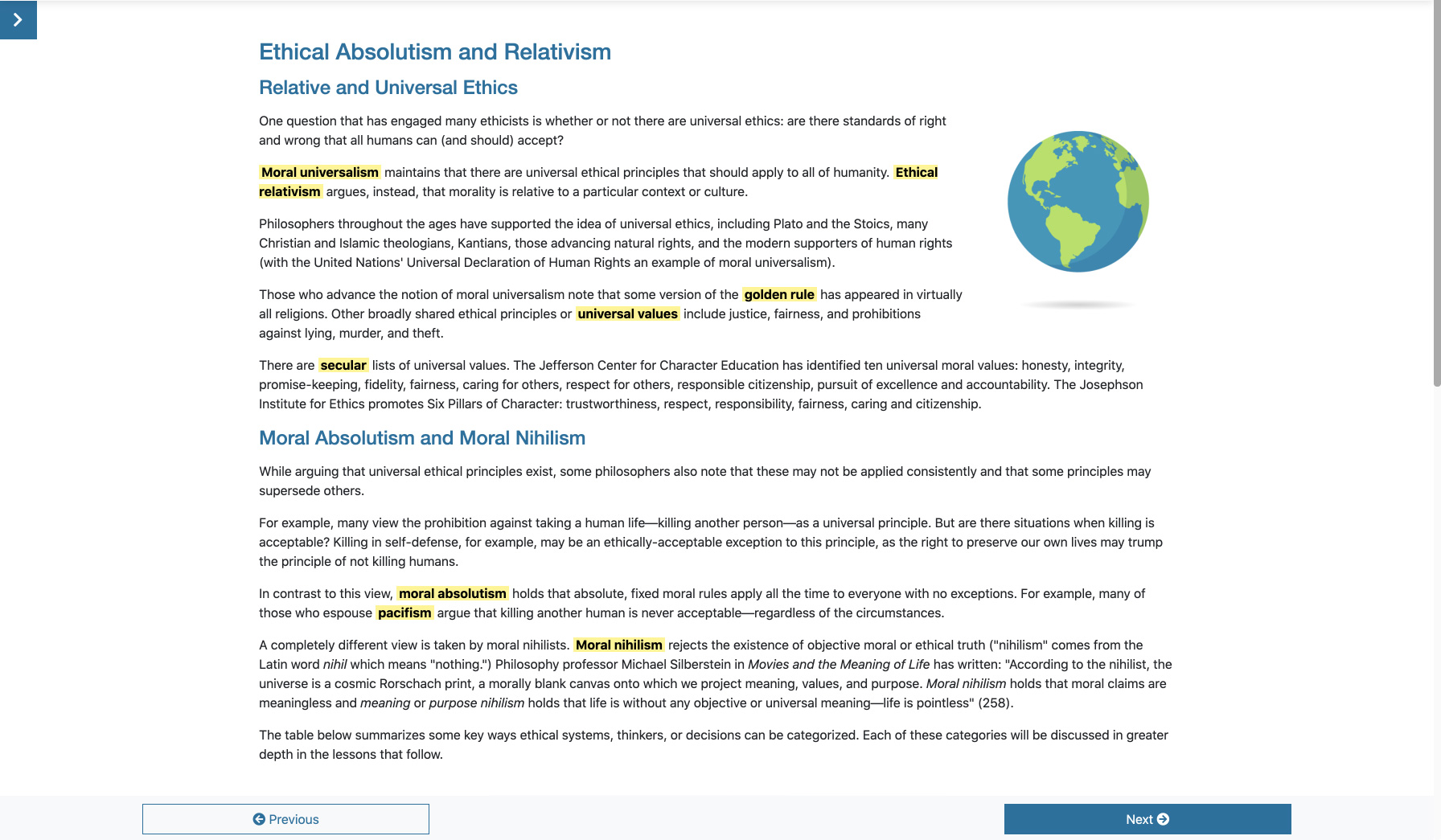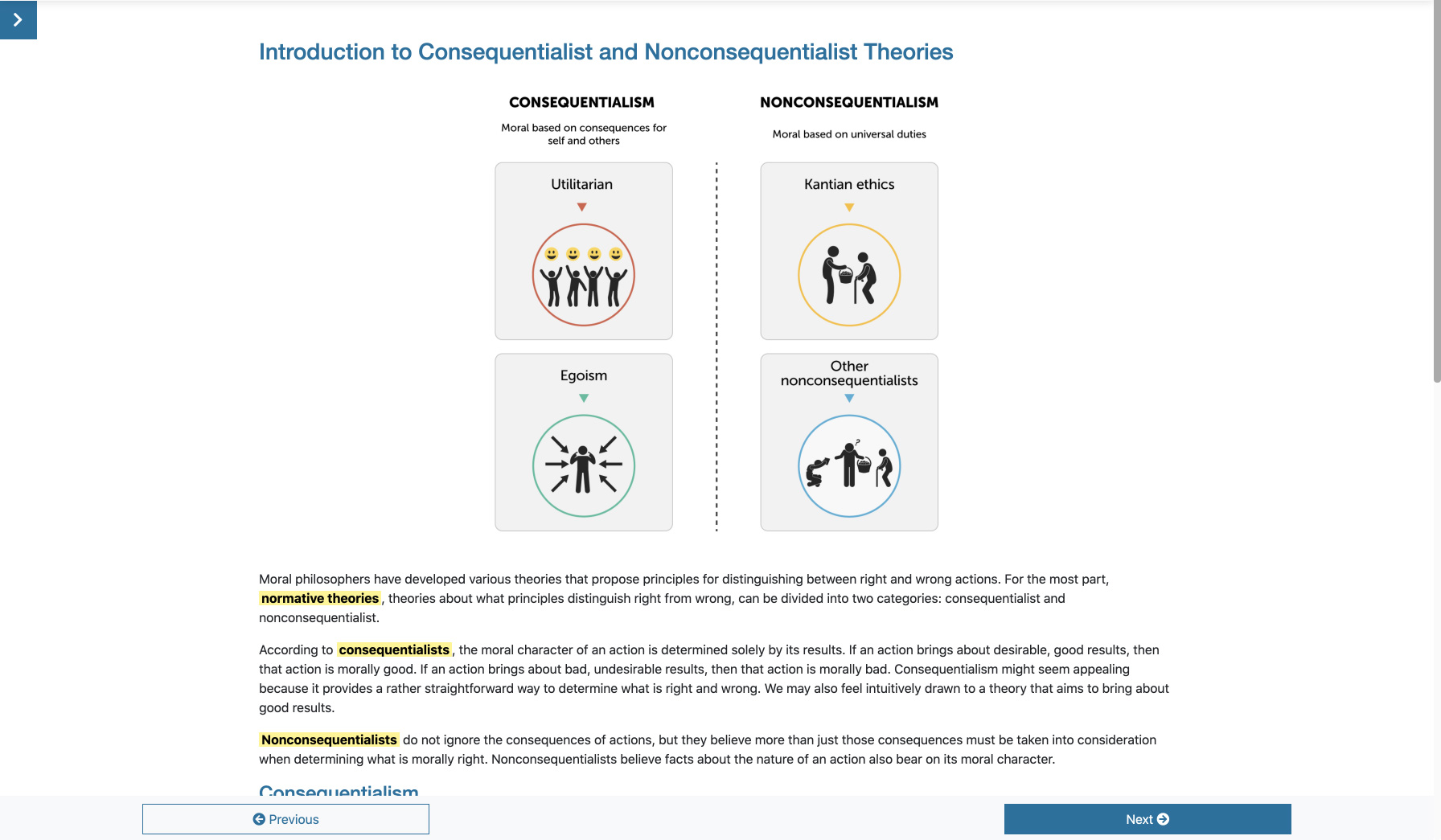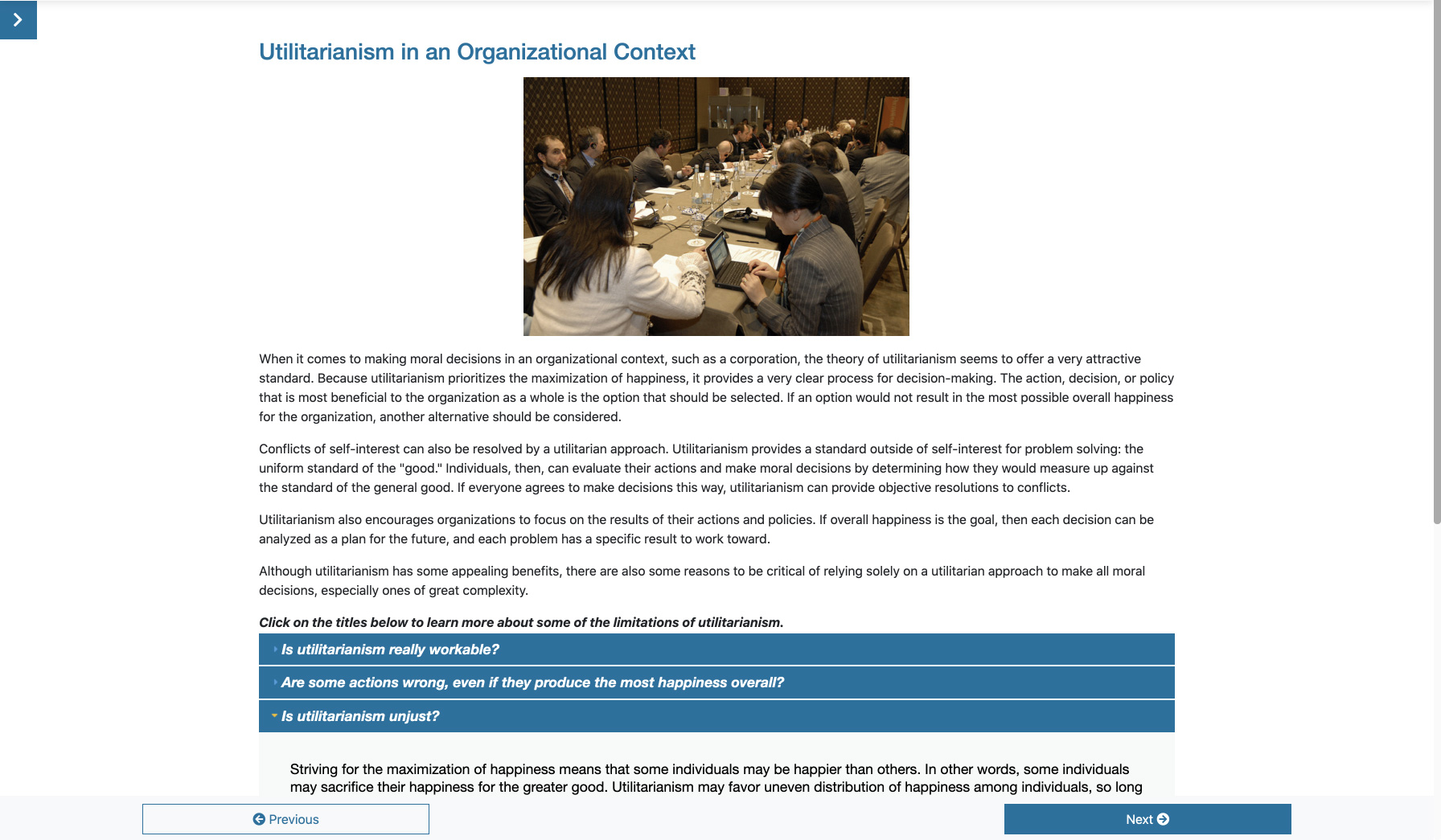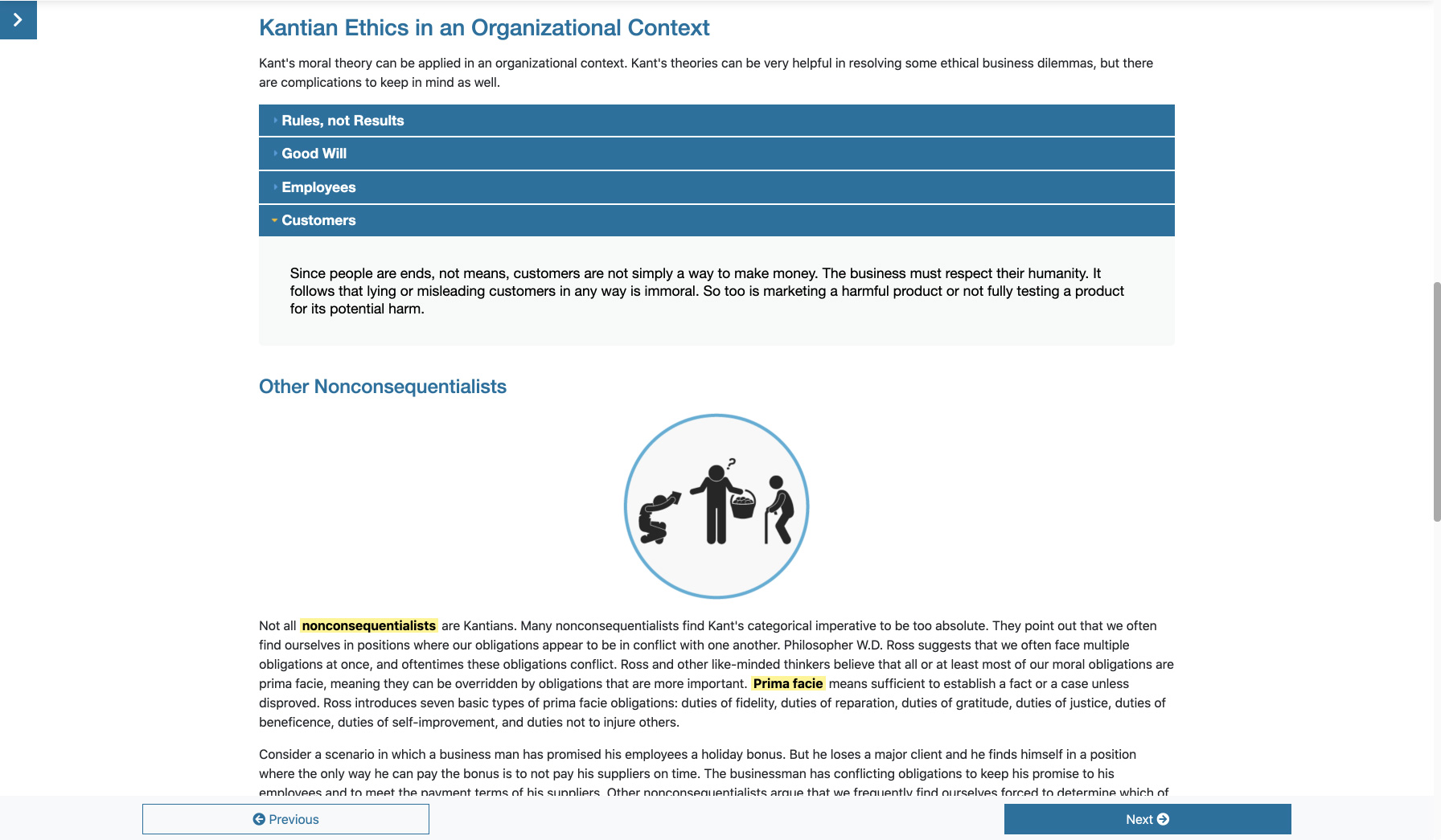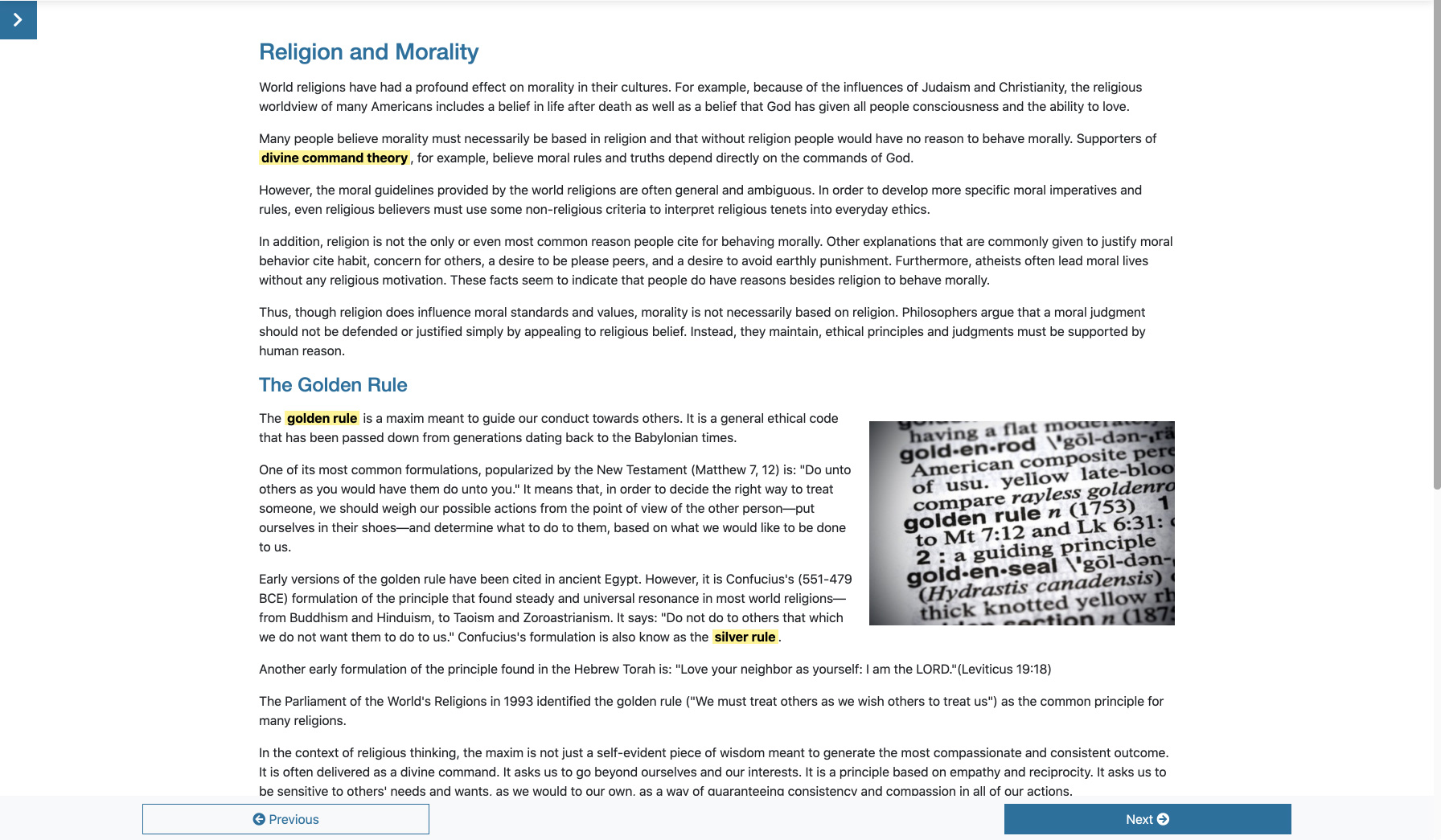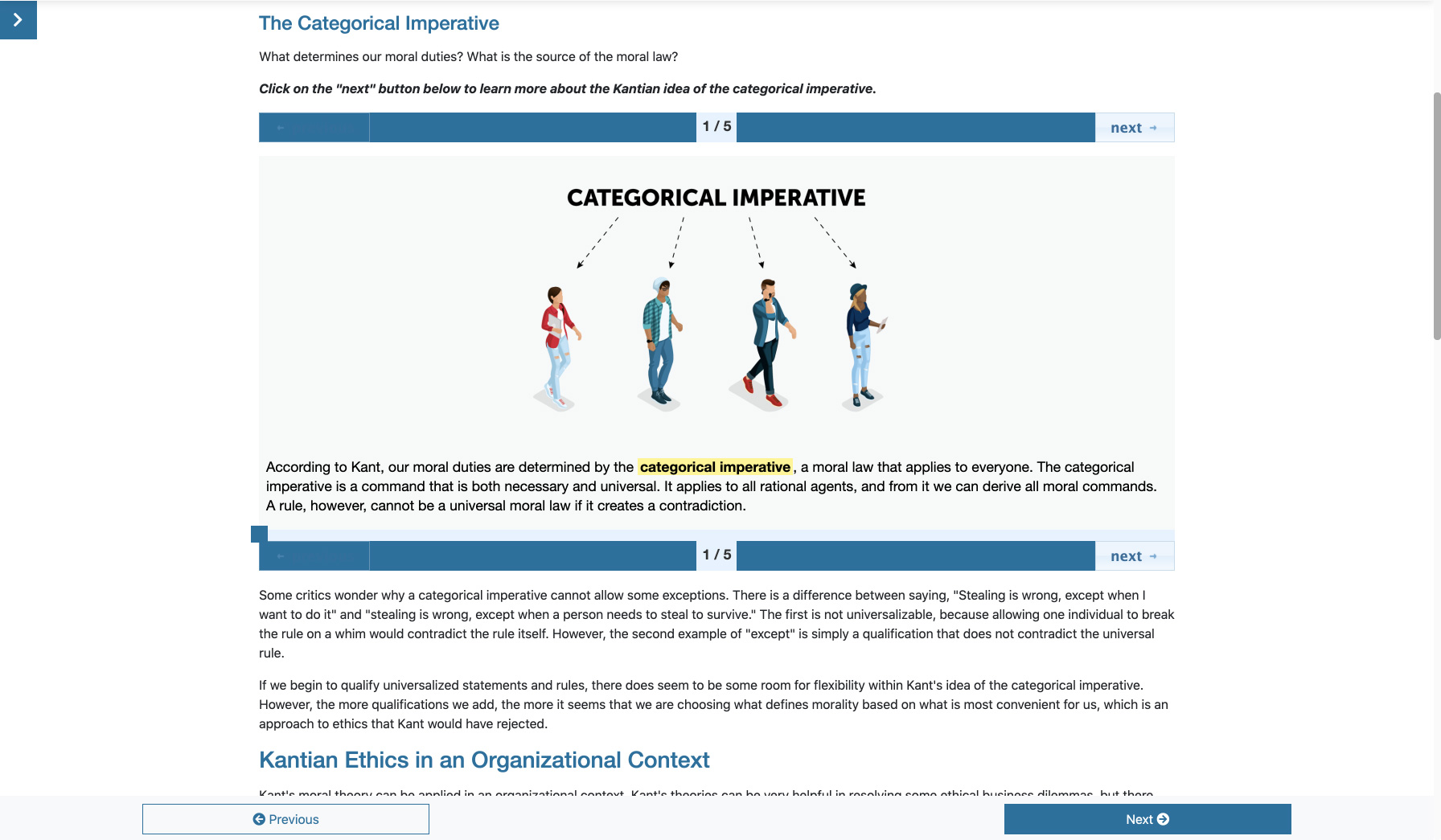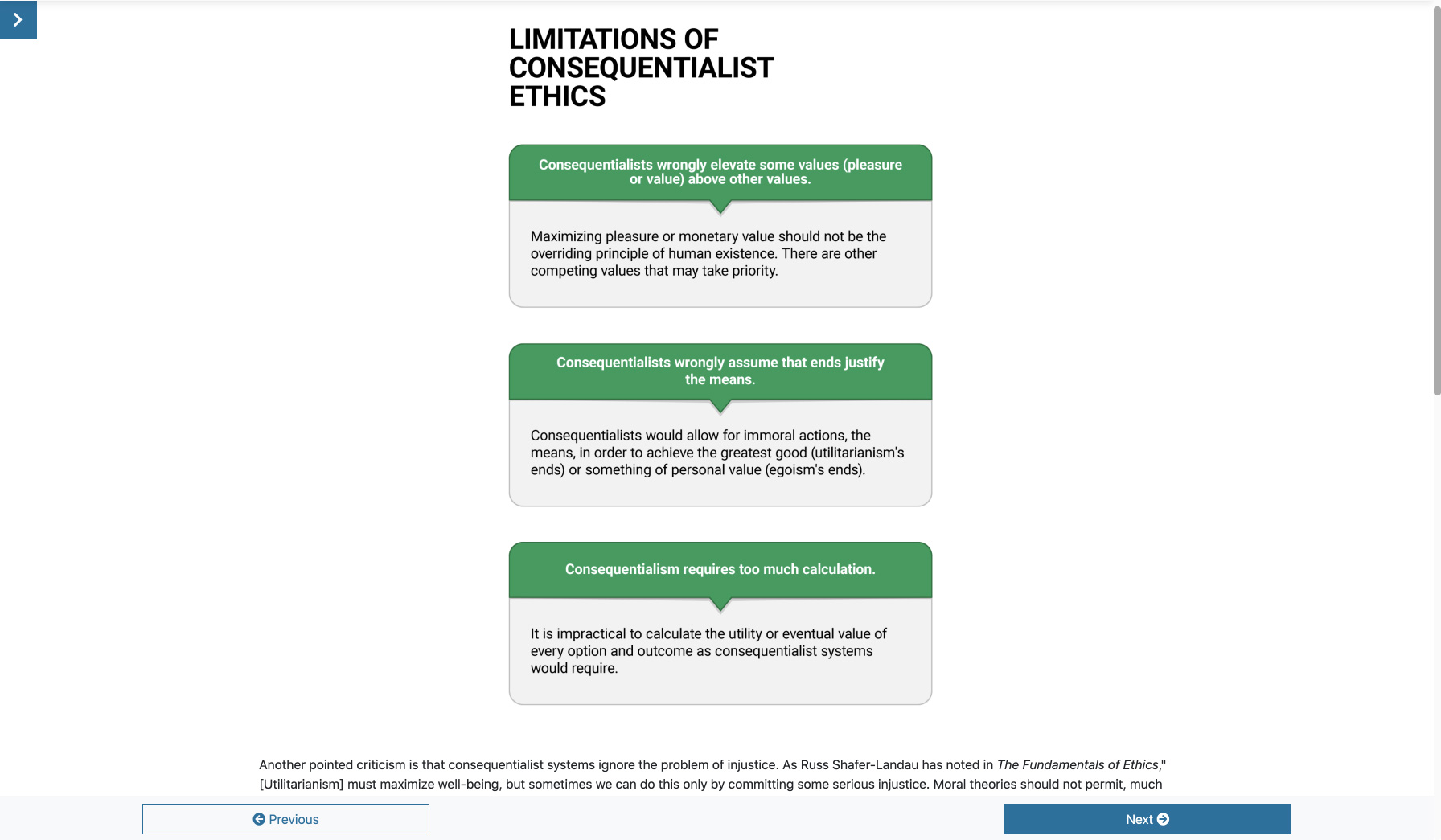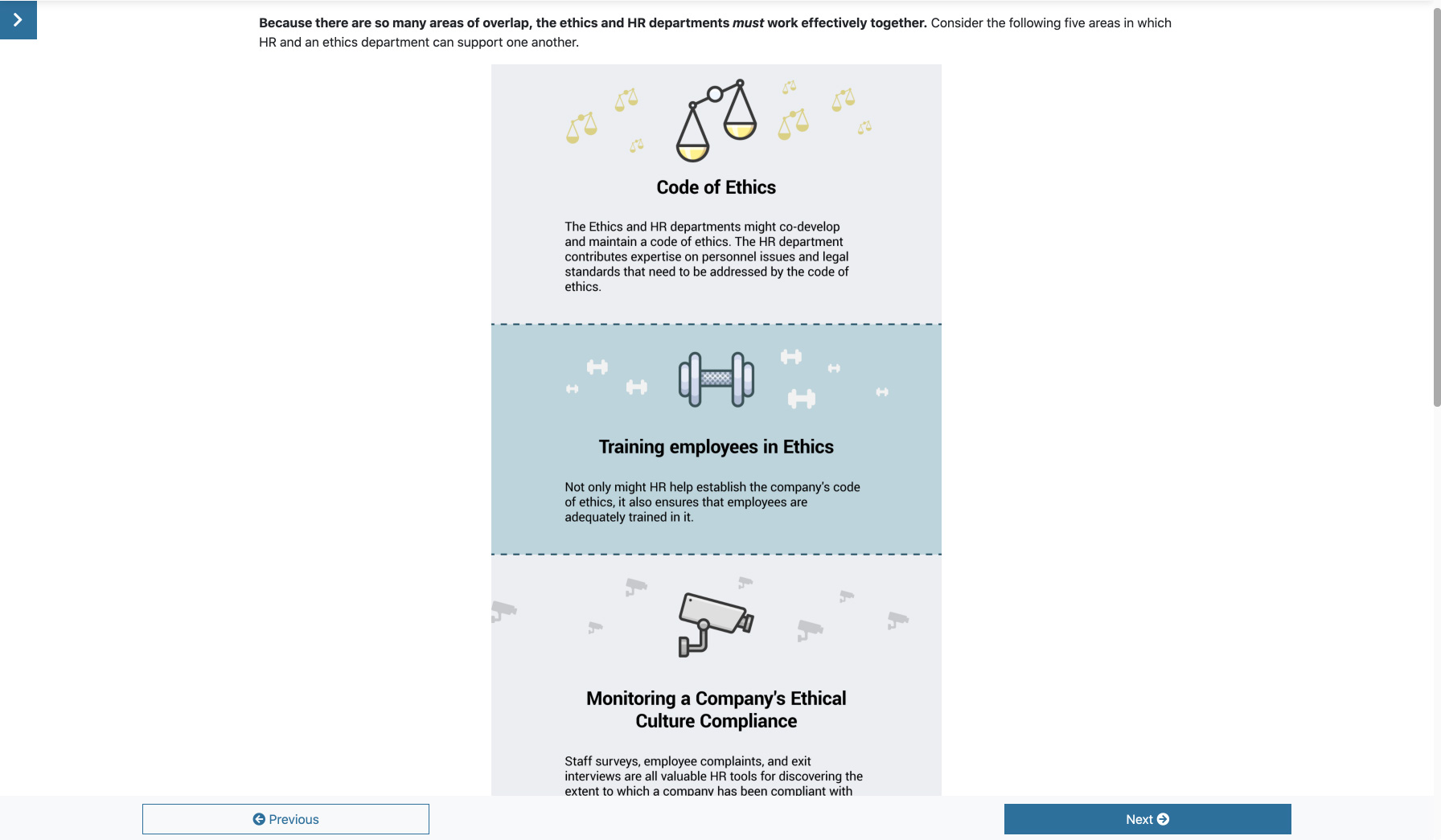Credits: CEU = IACET CEUs | PDU = PMI PDUs | HRCI = HRCI Credits | SHRM = SHRM PDCs | CFRE = CFRE Credits | ACE = ACE Credits

HR Ethics Series: Theories of Ethics
Key Features
Course Description
Ethical dilemmas confront those in business with the fundamental question: “ What's the right thing to do?” But the “ right” thing is often difficult to determine and an unexamined patchwork of ideas inform the decision. In order to better understand how to judge right and wrong, this course introduces some foundational ethical systems and explores their implications for business decisions, with a particular focus on the role human resource professionals have in safeguarding ethics in a business environment. Should a business focus on following the rules or on the effects the decision will have? Can self-interest play a role in making an ethical decision? This course presents the ethical theories of utilitarianism, ethical relativism, egoism, and Kantian ethics. It also explores the role religion plays in the development of ethical systems.
Learning Outcomes
- Define consequentialist and nonconsequentialist theories of ethics
- Recognize utilitarianism and apply it to an organizational context
- Describe Immanual Kants approach to ethics and apply it to an organizational context
- Analyze the elements of moral decision making
- Identify the relationship between religion and morality
- Define ethical relativism
- Identify the role of individual integrity and responsibility
- Apply ethical principles to workplace scenarios
- Recognize the relationship between HR and the ethics department
Refund Policy
You may request a refund up to 7 days from the purchase date. The registration fee will only be refunded if less than 10% of the course has been completed. Completion percentage can be viewed on the Course Progress page from within the course.
Notes
This course has an “Ask the Expert” feature, which submits your questions directly to an expert in the field you are studying. Questions are answered as quickly as possible and usually within 24 hours.
This course does not require any additional purchases of supplementary materials.
Learners must achieve an average test score of at least 70% to meet the minimum successful completion requirement and qualify to receive IACET CEUs. Learners will have three attempts at all graded assessments.
Course Preview
Pinch to zoom
